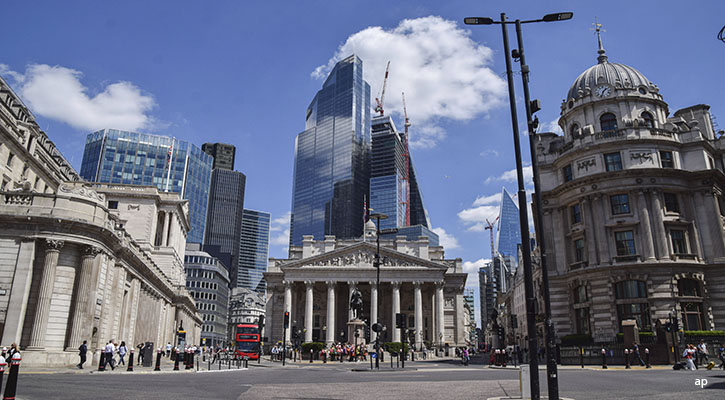
UK inflation has remained steady at 6.7% in September, a blow to the Bank of England (BoE) and government, which were expecting the recent downward trend to continue.
Transport, restaurants and hotels were the main contributors to the upward pressure on the Consumer Price Index (CPI), the Office for National Statistics (ONS) said.
These offset falls in food, non-alcoholic beverages, furniture and household goods. CPI remaining at 6.7% defied forecasts for a 6.5% gain in September. Combined with continuing strong wage growth, as shown by data released on Tuesday, this will present a dilemma for the Bank, which held interest rates in September at 5.25%. This pause suggested to some economists that the BoE was "done" in terms of rate rises, a debate consistent with that seen in the US.
But the UK has its own particular problems, as the Institute for Fiscal Studies (IFS) outlined on Tuesday. We are heading for a recession in 2024, the IFS predicts, but the Bank of England will still want to see concrete evidence of inflation falling before cutting rates.
There was some good news for policymakers, of sorts, in the fall in core inflation, a measure which excludes energy, food, alcohol and tobacco. This measure has proved more stubborn in recent months despite the fall in the headline figure. Core inflation rose 6.1% last month on September 2022, less than the 6.2% rise in August. But this is slow going in terms of reversing the trend line.
The Consumer Price Index actually rose on a month-on-month basis, by 0.5%, against forecasts for a 0.4% rise. The next BoE meeting is on November 2, ahead of the Autumn Statement of November 22.
Morningstar Says
"The news that UK CPI didn’t fall in September will disappoint the market today," says Morningstar's European market strategist Michael Field.
"At 6.7%, inflation in the UK remains high, much higher in fact than the Bank of England’s target rate of 2%. The good news in the releases was that core inflation, the measure of inflation once we remove the more volatile energy and food components, fell by 10 basis points to 6.1%, so some relief for consumers, but not much.
"Optimists will point to the large fall that should come next month, when we come to the one-year marker of the Ofgem cap on energy prices. This should knock a good 1% off headline inflation, but again if we focus on that core component, it likely won’t shift, and the danger is that getting core inflation down from here to anywhere near 2% may take years, not just months.
"Why is this a problem? Well, it poses a dilemma to the Bank of England, because stubbornly high inflation means that they will likely keep interest rates high. Running high interest rates with a weak economy is a tight-rope act, one wrong move and we’re in a potentially damaging recession.
"Stock valuations In the UK aren't expensive currently, but nor are they cheap, and critically, they are not pricing in a recession. Consumers are already tightening their belts, with a recent PWC poll showing that the average consumer will spend 1/3 less this christmas. The economy remains on a knife-edge, and investors wait with bated breath for signs that the BoE can start to cut rates, or at least hit the pause button. Today’s release was not one of these signs."




























